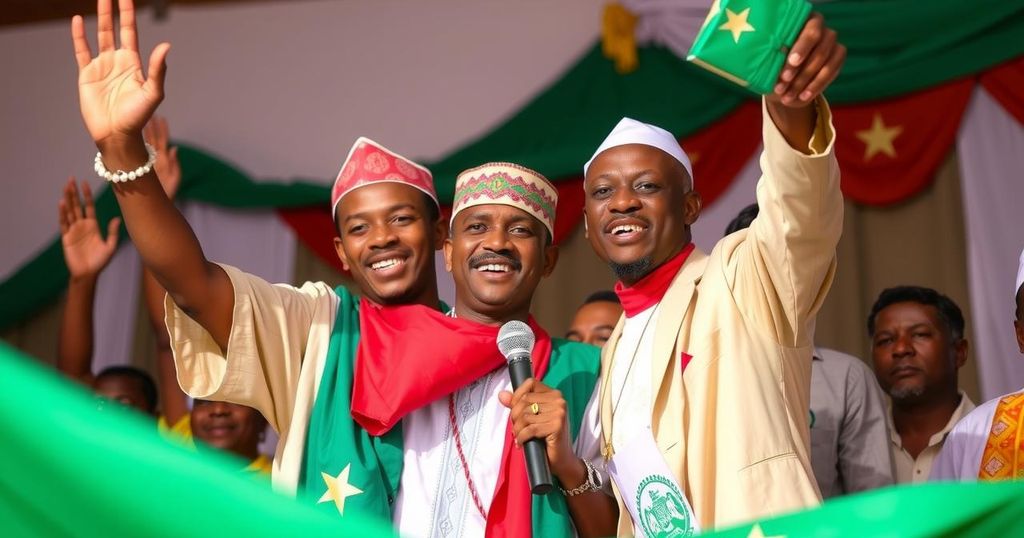World news
AFRICA, AHMED BARTCHIRET, AP, BOKO HARAM, CHAD, CONSTITUTIONAL REFORMS, DEBY, DEMOCRACY, DJAMENA, ELECTIONS, ELECTORAL COMMISSION, EUROPE, FRANCE, GOVERNANCE, GOVERNMENT, LAKE CHAD, MAHA, MAHAMAT IDRISS DEBY, OPPOSITION, PATRIOTIC SALVATION MOVEMENT, SUCCES MASRA, TRANSFORMERS
Stella Nguyen
0 Comments
Chad’s Ruling Party Secures Majority in Boycotted Parliamentary Election
Chad’s ruling party won a parliamentary election with a majority of seats, amid a boycott from the main opposition. This election, the first in over a decade, could bolster President Deby’s political power. With 51.5% voter turnout, concerns remain about the election’s legitimacy following the main opposition’s dismissal as a charade.
In a parliamentary election held last month in Chad, the ruling Patriotic Salvation Movement party emerged victorious, securing 124 of the 188 available seats. This election marked the first parliamentary vote in over ten years, with a reported voter turnout of 51.5%. Notably, the election was boycotted by the main opposition parties, which included more than ten groups. Analysts suggest that the ruling party’s decisive win may further solidify President Mahamat Idriss Deby’s hold on power, following his rise to leadership after the death of his father, Idriss Deby Itno.
The parliamentary elections were part of a broader transition to democracy initiated under President Deby, who initially took control in 2021 amid military upheaval. Deby characterized the elections as a pivotal moment for Chad’s governance, asserting that they would facilitate a long-awaited decentralization process, thereby distributing authority across various local and provincial administrations. Opposition parties, particularly the Transformers party, dismissed the elections as a mere illusion, emphasizing concerns about the legitimacy of the electoral process, as experienced during previous votes.
Chad has historically faced political instability and conflict, particularly after the lengthy presidency of Idriss Deby Itno, who ruled for thirty years until his death in 2021. Following his passing, his son Mahamat Idriss Deby assumed power through a military takeover. The recent parliamentary elections were intended to signal a transition toward democracy and more decentralized governance. However, the significant boycott by opposition parties raises questions regarding the credibility and fairness of the electoral process, as past elections have faced scrutiny from both international observers and local factions.
The recent parliamentary election in Chad reflected a critical moment in the nation’s political landscape, where the ruling party’s overwhelming victory came amid significant opposition boycotts. While President Mahamat Idriss Deby aims to promote decentralization and democratic governance, the absence of participation from major opposition parties casts a shadow over the elections’ legitimacy. Moving forward, the political stability of Chad will depend on the government’s ability to address the concerns raised by opposition factions and navigate the ongoing security challenges faced by the country.
Original Source: abcnews.go.com




Post Comment